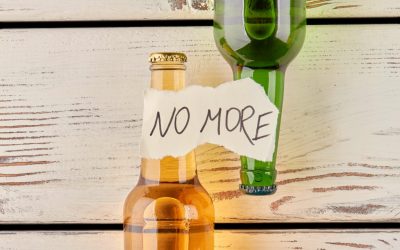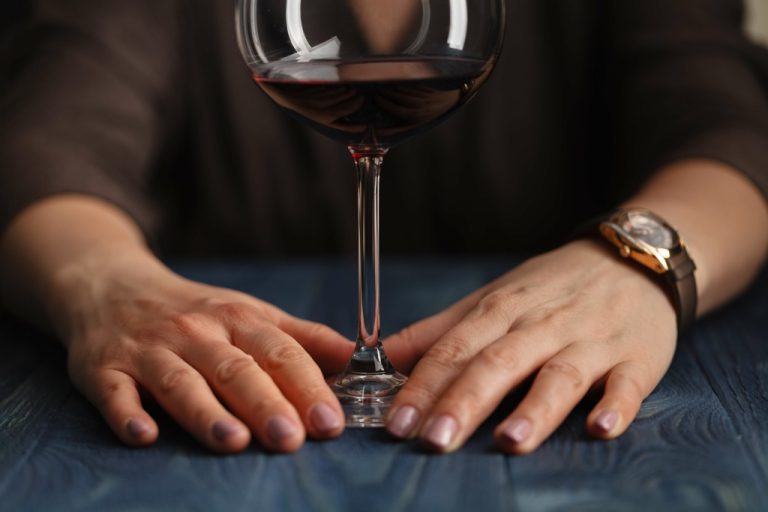- S-24A, Hargovind Enclave, Chhatarpur, New Delhi-110074, INDIA
- +91-9717340000
- info@Khusifoundation.com
Alcohol Use Disorder: What to Expect When You Quit Drinking
Alcohol causes changes in the body that can also contribute to weight gain. It slows metabolism, stimulates appetite, and increases cortisol, a hormone that promotes fat storage and weight gain. Quitting alcohol can seem like a daunting journey, especially if you’ve been relying on it as a form of self-medication for a long time. Reach out to us today by calling us or scheduling a conversation at a time that works for you. Plus, we’re always introducing new features to optimize your in-app experience.
After one year, you should notice major improvements in physical and mental health. Your energy levels should be higher than ever before and any long-term conditions caused by drinking should have been reduced or eliminated. You should also be feeling more confident in your new sober lifestyle and taking advantage of all the opportunities that are now available to you. Two weeks after quitting alcohol, many people start to notice a decrease in sugar cravings and some even start experiencing weight loss. Additionally, the liver starts to process carbohydrates more effectively, helping lower blood sugar levels and reducing the risk of developing type 2 diabetes. Two weeks after quitting alcohol, many people start to notice a decrease in sugar cravings, and some even start experiencing weight loss.

Get Help from a Recovery Advocate
Delirium tremens is a medical emergency that can result in death. If you or someone you know shows signs of delirium tremens, go to the emergency room immediately. Younger individuals tend to recover more quickly than older adults.
- Withdrawal symptoms have usually lessened considerably, and you may feel increasingly confident in your ability to stay sober.
- After a month of abstinence regular drinkers also report feeling more confident about making changes to how they drink.
- You can also have a few non-alcoholic drink options in mind, like sparkling water with lime or a refreshing mocktail.
Alcohol is also linked to poor sleep quality, so you might feel more energized after a week without alcohol, she added. If you stop drinking for a week, you might notice some positive changes in your gastrointestinal system. The digestive tract heals quickly after someone cuts out alcohol, according to Debbie Petitpain, MBA, RDN, a registered dietitian based in Charleston. Alcohol also reduces the liver’s ability to regulate blood sugar. Once alcohol leaves the system, blood sugar begins to normalise. If you are thinking about taking some time off alcohol, you’ll find many quick wins and long-term gains for your health.

Cognitive Function
Without hangovers, people often feel more productive and energetic. In sobriety, people may seek out new activities like sports, hobbies, or volunteer work. For more information, you can read about the effects of stopping drinking on health and what happens to your body.
- Quitting alcohol is more than just stopping a habit; it’s a profound journey of physical healing and self-discovery.
- This critical period involves the body’s natural process of eliminating toxins and restoring balance to the neurochemical systems disrupted by prolonged alcohol use.
- When a person stops drinking, they may notice a substantial improvement in their overall mood and emotional state.
- While you will still likely have some alcohol cravings, you will probably feel pretty good about quitting alcohol.
- But among the factors that are within our control, like diet and lifestyle choices, drinking alcohol may have a profound impact on our chances of developing cancer.
Although each person’s experience will be unique, here’s a general timeline of what happens when heavy drinkers give it what happens when you stop drinking alcohol a rest. Symptoms of alcohol withdrawal can range from mild to serious and can sometimes be life-threatening. If you drink only once in a while, you’re unlikely to have withdrawal symptoms.
Days 2 and 3 With No Alcohol
Hydration levels increase, leading to clearer and more radiant skin. Alcohol can cause inflammation and redness, so giving it up can reduce these issues. Over time, you might notice fewer wrinkles and a more youthful appearance. When you quit drinking, there are various risks and considerations to be aware of. These range from withdrawal symptoms to the need for professional support to manage potential complications effectively. The absence of alcohol allows the body to better regulate chemicals that affect mood.
Things That Happen to Your Body When You Stop Drinking Alcohol for 30 Days

It’s also vital to consult a medical professional before you stop drinking. Alcohol withdrawal is a serious medical concern, and you should make a plan with your physician to ensure that you can start cutting back safely. Define why you want to cut back on or quit alcohol, and set specific, achievable goals, such as reducing the amount you drink or the frequency of your drinking. If you want to cut it out for Dry January or Sober October, be sure to hold yourself accountable for the month, too. “Fatty liver is a common phenomenon in individuals who drink heavily and regularly, leading to cirrhosis and end-stage liver disease,” says Mary Wirtz, MS, RDN, CSSD.
Even just what is alcoholism one bout of drinking too much may weaken your body’s germ-fighting power for up to 24 hours. Over time, large amounts of alcohol blunt your immune system and your body’s ability to repair itself. Their comprehensive services include medication-assisted detox and post-detox care designed to create a foundation for lasting recovery. However, outpatient programs come with important limitations, such as less supervision, easier access to substances, prolonged crisis response time, and reduced intensity of treatment. If you struggle with severe AUD and have a history of relapse, outpatient programs may be discouraged in favor of inpatient treatment. When people decide to stop drinking, they may hold the belief that they just have to tough it out to get through it.
to 12 Hours After the Last Drink
Still, there are consistent stages that most people experience during alcohol recovery. Understanding the timeline of healing can help manage expectations, reduce anxiety, and reinforce the importance of professional addiction treatment. However, when you quit drinking alcohol, anxiety levels tend to go down, confidence increases, and the overall mental quality of life improves. Alcohol withdrawal (alcohol withdrawal syndrome) is a range of symptoms that can happen if you stop or significantly reduce alcohol intake after long-term use. Getting your liver or blood pressure checked by your doctor can help you feel motivated to continue the journey of recovery, and reduce long-term effects of alcohol on the body.
Your Blood Pressure Will Decrease
Many alcoholic beverages are high in sugar, and your body is still in recovery mode. While turning to sugar instead of alcohol is okay in the short term for most, you should work with your physician and therapist to identify healthier ways to cope with cravings. Around day 10, you might experience your first full night of quality sleep. You might realize you’re having more dreams than you did before, and waking up feeling more rested and energized. As you spend less time and energy managing physical symptoms, you may be wondering – what do I do with all this free time I used to spend drinking or recovering from drinking? Finding fun alcohol-free activities can help you distract yourself from alcohol cravings and build new routines.
Life Before and After Stopping Alcohol: What to Expect on Your Sobriety Journey
That way, they can help you manage the discomfort and respond quickly in case of a medical emergency. Only about 1%-1.5% of people with alcohol withdrawal will have DTs. They can continue for several days and are often at their most intense four to five days after your last serving of alcohol. If you are a heavy drinker, you should consider entering a medically supervised detox to safely manage these symptoms. Long Island Interventions can provide you with the right treatment and support needed to detox from alcohol in a comfortable, safe environment. Often people have more sex, and enjoy it more, when they’re sober.